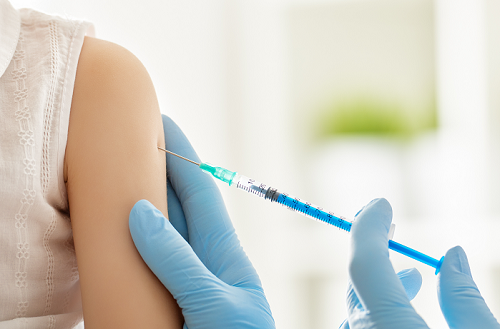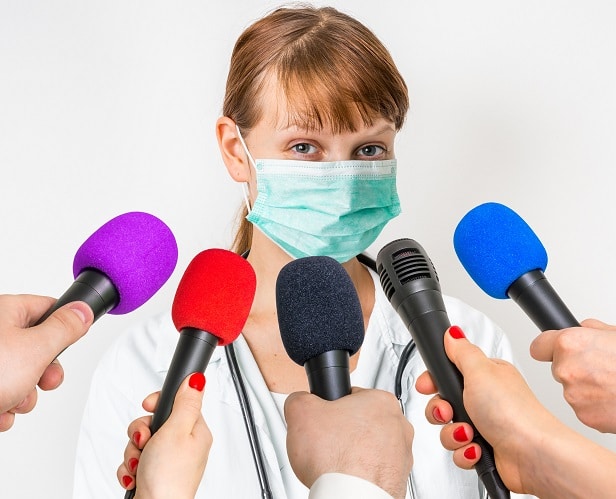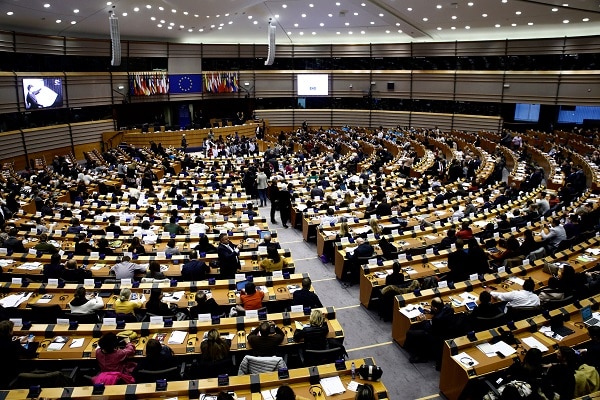Experts have been omnipresent since the onset of the COVID-19 pandemic, but why should we trust them? And why not?
The video “Why Trust Experts?” asks us to reflect on the role expertise plays in our daily lives. We have all seen the involvement experts have had in advising citizens and politicians during the pandemic. Now is an opportune time for us to ask questions about the nature of trust in expertise. How does trust in experts function? How is trust in science related to trust in media? Why is trust in expertise important for democracies? How can we learn to trust trustworthy experts?
Why Trust in Expertise Matters

Understanding trust in expertise and science
Our lives are guided by all sorts of expertise. Structural engineers make sure bridges are safe to use. Scientists determine if our food is healthful. Politicians receive advice from experts of all kinds. But how does trust in expertise actually work?
Trusting an expert happens when we learn from others or consider another person's track record of competence and training. For instance, we may heed advice from someone whom we know to be a doctor and therefore whom we believe to be competent in their area of expertise. In philosophy, this is called “epistemic trust”.
We trust experts not only on the merit of their professional background. We assume that they are honest, reliable, and well-intentioned. Emotional aspects are thus important for understanding trust in expertise. There may also be ideological and psychological considerations.
When do we refuse to trust experts? When they disagree, when they make mistakes, or when they seem dishonest or ideological. The uncertainty inherent in scientific debates may cause people to refuse to trust any expert claims.
Is there a crisis of trust in expertise and science?
It is commonly stated that there is a crisis of social trust in democratic public institutions, but how far does this crisis extend to expertise and science?
There is no clear evidence of a crisis of trust in science, which PERITIA is investigating. Recent surveys seem to detect high levels of public trust in science and research (Pew Research, Trust Barometer, IPSOS Mori) with no major changes in recent years. These levels are generally stronger when compared to other fields such as politics or media.
What is often agreed is that there are various forms of science or expert scepticism. There may be cause for concern in some areas of expertise that play an important role in public policy – for instance, vaccinations, economics or climate change.
Furthermore, there has been an alarming rise of populist “anti-science” rhetoric. PERITIA seeks to shed some light on how to deal with populist backlash against experts who have become identified with elitism and intellectual arrogance.
Expertise, Media and Policy

How is trust in science and expertise related to trust in media?
Media plays a significant role in shaping trust in science and expertise – how scientific information is presented and by whom matters. For instance, news stories may exaggerate scientific findings, or the public may distrust certain journalists more than others. Declining trust in media can ultimately impact levels of trust in science or expertise.
Digital media adds another layer of complexity. With the proliferation of online resources and social media platforms, public debates are now open to everyone to an unprecedented extent. For example, users can access medical information merely by performing an online search. This access gives us the apparent ability to verify information and act with autonomy, but how do we assess the trustworthiness or credibility of these online sources? In these digital spaces, there is no easy way to establish a system of checks and balances.
A third challenge is the rise of online propaganda and misinformation campaigns. Scientific consensus around such topics as climate change or vaccination have become the target of political actors. New digital communication tactics are being used in these campaigns to deliberately sow false beliefs and distrust, and to misinform us. Social media platforms warrant special attention as their automation and anonymization allow for sophisticated dissemination on a large scales.
How should science inform policymakers?
There are many examples of providing expertise to policymakers. Governments and political actors seek expertise through multiple channels: their own bureaucracy, political advisors, interest groups, think tanks, temporary or permanent bodies, research institutions, consultancies…
But what models are in place and which are best suited to enhance trust in expertise? This is a central question that PERITIA is addressing. To do so, our team is investigating scientific advice mechanisms across various European countries (Poland, UK, Germany, and Nordic countries).
Our research focuses on the trade-offs between public trust, citizen participation and the quality of the expertise. Is the quality of the expert debate compromise by opening it to ordinary citizens? Can this participation enhance (or diminish) public trust in the expertise used by policymakers?
Want to learn more?
Read “Trust in Science and Changing Landscapes of Communication” – ALLEA Discussion Paper
Watch “Governing trust in a digital platform society” – José van Dijck
PERITIA resources
Special Issue Governing Trust in European Platform Societies
Watch the conference Trust in Expertise in a Changing Media Landscape
Expertise and Democracy

Why is trust in expertise important for democracy?
Since the early 1970s, there has been an increasing reliance on expert opinion in policy decisions. Due to the complexity of today’s society and policy, expert advice, evidence and data are needed more than ever to improve societal well-being. We see this in recent public debates like Covid-19 or climate change, but it also applies to heated discussions around artificial intelligence, food safety, economy or education.
This central role of expertise in our political system but also in our lives makes even more necessary for citizens and policymakers to learn how to trust trustworthy expertise. Well-placed trust in expertise can help us take the correct decisions and improve our forms of governance in our technologically advanced societies.
How can democracy be reconciled with science?
There has always been a tension between the ideals of democracy and the reliance on expert advice for policy decisions. Democracy thrives on debate and disagreement and constructive debate. However, science has often been perceived or presented a “non-debatable”. How can we rely on experts in complex societies while ensuring democratic norms of debate as equal citizens? This dilemma is at the heart of PERITIA´s investigation.



